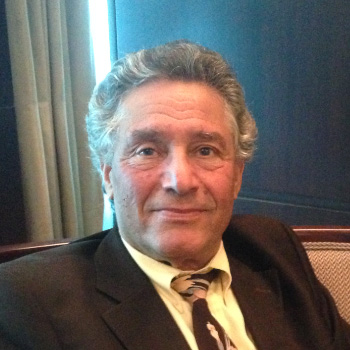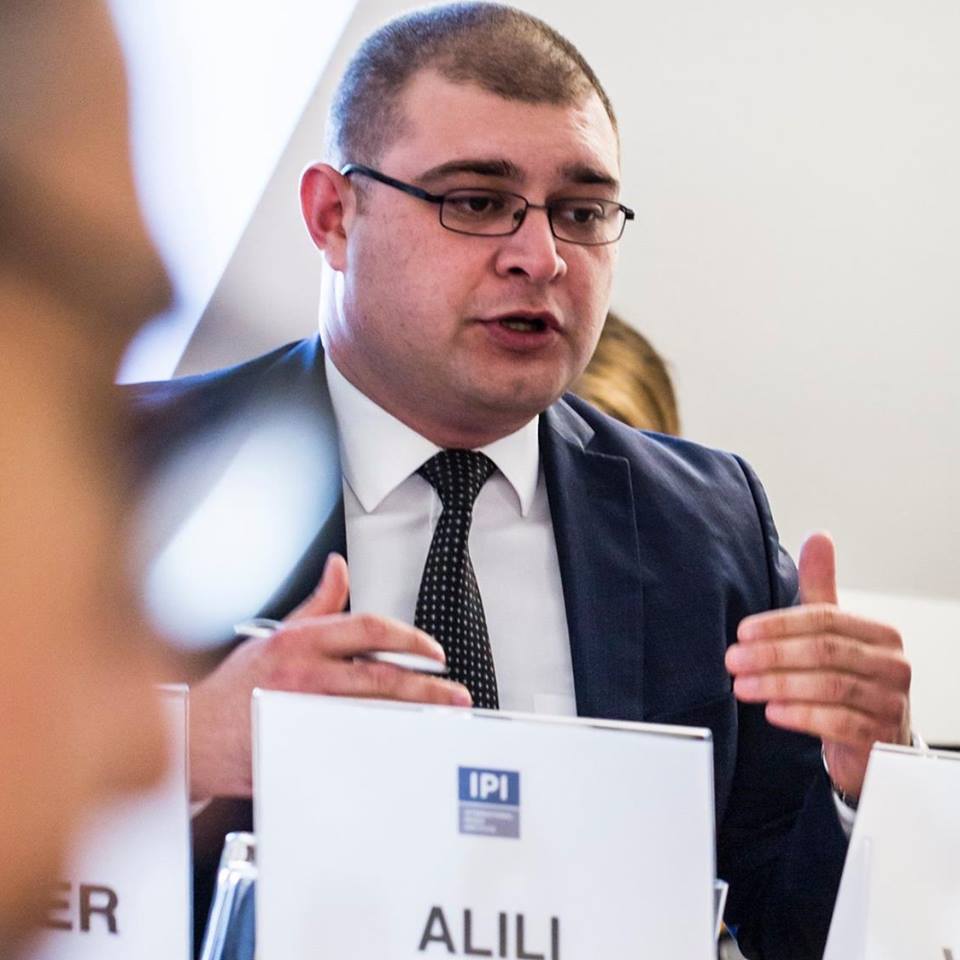
Armenia-Iran Relations: Continuity or Ambiguity?  By Benyamin Poghosyan, PhD, Chairman, Center for Political and Economic Strategic Studies
By Benyamin Poghosyan, PhD, Chairman, Center for Political and Economic Strategic Studies
Relations with Iran have always been high on Armenia's foreign policy agenda. Given the closed borders with Azerbaijan and Georgia, Iran is one of only two gateways to the world for Armenia. Friendly relations with this neighboring Muslim state play a significant role in Armenian efforts to counter Azerbaijan in its attempts to depict the Karabakh conflict as a religious one and thus garner the Muslim world's support against Armenia. READ MORE
- EGF Editor |
Published on EGF: 19.05.2020
| External Relations
-
Why “The Land for Promise” Formula Will Never Be Accepted  By Benyamin Poghosyan, PhD, Chairman, Center for Political and Economic Strategic Studies
By Benyamin Poghosyan, PhD, Chairman, Center for Political and Economic Strategic Studies
Despite the worldwide standstill brought by the COVID–19 pandemic, conflict resolutions remain among the key priorities of the international community. This is true for the Nagorno Karabakh conflict too. Without going deep into history it’s worthy to recall the key milestones of the conflict. The Nagorno Karabakh Autonomous Region declared its intention to leave Soviet Azerbaijan and join Soviet Armenia in February 1988. In the final days of the Soviet Union, Nagorno Karabakh organized a referendum and declared its independence. Almost immediately Azerbaijan launched a military attack against Nagorno Karabakh seeking to crash the newly established republic. READ MORE
- EGF Editor |
Published on EGF: 12.05.2020
| Security
-
Why is Lavrov Pushing for a Karabakh Agreement?  By Benyamin Poghosyan, PhD, Chairman, Center for Political and Economic Strategic Studies
By Benyamin Poghosyan, PhD, Chairman, Center for Political and Economic Strategic Studies
As the world mobilizes to combat the COVID - 19 it sometimes appears that the pandemic has stopped geopolitics. Many urgent topics of international relations have been put aside. However, sooner or later the world will return to normality, and the old problems will re-emerge. Coronavirus has not decreased US - China rivalry, to the contrary the Post COVID-19 world will likely be characterized by a growing confrontation between China and the US. Among the problems waiting their turn to re-emerge in the geopolitical landscape in the post-Soviet space is the Nagorno Karabakh conflict. READ MORE
- EGF Editor |
Published on EGF: 30.04.2020
| Security
-
Presidential Elections in Karabakh: Background and Implications  By Benyamin Poghosyan, PhD, Chairman, Center for Political and Economic Strategic Studies
By Benyamin Poghosyan, PhD, Chairman, Center for Political and Economic Strategic Studies
On March 31, 2020 presidential and parliamentary elections were held in unrecognized Nagorno Karabakh Republic. Five parties entered the Parliament, while President was elected during the second round, on April 14. The winner of the Presidential campaign was Arayik Harutyunyan, who received 49 percent of votes during the first round and 88 percent during the second round. However, his main contender Masis Mayilyan de facto boycotted second round asking his supporters not to participate in the elections due to the COVID19 outbreak. READ MORE
- EGF Editor |
Published on EGF: 22.04.2020
| External Relations
-
Oil Market Collapse Damages the Iraqi Economy  By Ahmed Mousa Jiyad, Development Consultancy & Research, Norway
By Ahmed Mousa Jiyad, Development Consultancy & Research, Norway
The collapse of the global oil market is undoubtedly unprecedented in its timing, magnitude, spread and devastating impacts across the globe. A strange and unpredicted association of a few, but major, factors had contributed to the current threat, causing much uncertainty and vulnerability on national and global levels. The revised "OPEC+" production cut agreed on 12 April prompted initial minor improvement in oil price, but there remains very many serious concerns that such reduction is much below what is needed to bring stability to and balances a saturated global oil market. READ MORE
- EGF Editor |
Published on EGF: 15.04.2020
| Markets
-
Coronavirus Presents Armenia with Difficult Challenges  By Benyamin Poghosyan, PhD, Chairman, Center for Political and Economic Strategic Studies
By Benyamin Poghosyan, PhD, Chairman, Center for Political and Economic Strategic Studies
The COVID-19 pandemic has confronted governments with two massive simultaneous challenges. They have to contain the virus through large scale social distancing to prevent the uncontrolled growth of infected people and collapse of the health system. Meanwhile, each day that passes with economic activity virtually suspended puts an enormous pressure on businesses, and contributes to a possible social and financial collapse. Armenia faces the same dilemma. READ MORE
- EGF Editor |
Published on EGF: 15.04.2020
| External Relations
-
Covid-19 Is an Important Test for Azerbaijani Unity  By Ahmad Alili, Head of Research, Caucasus Policy Analysis Center, Baku
By Ahmad Alili, Head of Research, Caucasus Policy Analysis Center, Baku
The COVID-19 pandemic has created interesting qualitative and quantitative changes at the top of Azerbaijan's public agenda. Following the snap parliamentary elections in February, the newly elected Parliament, which includes a number of new faces, is tasked to address the challenges the country is facing. In a speech at the opening of the Parliament, President Aliyev sent clear messages to the public servants, political parties and youth. READ MORE
- EGF Editor |
Published on EGF: 15.04.2020
| External Relations
-
The Karabakh Elections Go to Second Round  By Benyamin Poghosyan, PhD, Chairman, Center for Political and Economic Strategic Studies
By Benyamin Poghosyan, PhD, Chairman, Center for Political and Economic Strategic Studies
Elections were held in Nagorno-Karabakh on 31 March but since no candidate secured the necessary amount of votes a run-off is now expected between the two leading candidates in two weeks-time.
On March 31, 2020 Presidential and Parliamentary elections were held in Artsakh (Nagorno-Karabakh). Elections are not something new for Karabakh. Since the mid-1990s regular general as well as local elections have been held there. However, this time almost everything was different, such as the record number of candidates (14 running for the office of President and 10 parties and 2 blocks for Parliament) and the fully proportional electoral system. However, the key difference was the ambiguity of the position of Republic of Armenia's leadership. READ MORE
- EGF Editor |
Published on EGF: 06.04.2020
| External Relations
-
Covid19 Outbreak - A Test to Global Governance  By Ong Tee Keat, Chairman, Center for New Inclusive Asia, Kuala Lumpur
By Ong Tee Keat, Chairman, Center for New Inclusive Asia, Kuala Lumpur
On March 11th , 2020, Robert Redfield, the director of US Center for Disease Control & Prevention (CDC), dropped a proverbial bombshell when he testified to the US Congress admitting that numerous Corona virus deaths might have been miscategorized as flu. This belated admission of misdiagnosis has further lent credence to the earlier speculation that many pulmonary fibrosis cases which resulted in deaths due to patients' inability to breathe might in fact have been caused by the Corona virus. These cases, where symptoms might have been masked by attributions to e-cigarette or vaping, happened well before the virus outbreak in Wuhan, China. READ MORE.
- EGF Editor |
Published on EGF: 01.04.2020
| External Relations
-
Will Armenia Withstand the Global Economic Turmoil?  By Benyamin Poghosyan, PhD, Chairman, Center for Political and Economic Strategic Studies
By Benyamin Poghosyan, PhD, Chairman, Center for Political and Economic Strategic Studies
The world economy has been in troubled waters since late 2018. The US – China trade war rattled the markets and triggered the significant changes in global supply chains. Many industrial giants were actively discussing the dislocation of production facilities from China to South East Asia nations such as Vietnam and Cambodia seeking to decrease the negative impact of the trade war.[…] However, the novel Coronavirus (COVID – 19) outbreak, which started in Chinese Wuhan city, has launched its seemingly unstoppable march around the globe since late January 2020. READ MORE
- EGF Editor |
Published on EGF: 26.03.2020
| Markets
-
